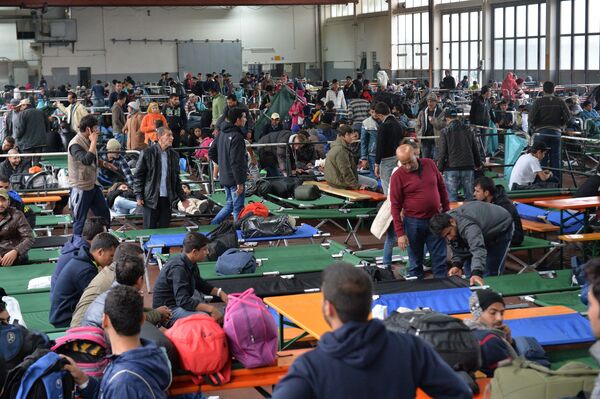As further cracks emerge with German Chancellor Angela Merkel's coalition government over her handling of the affair, new questions are being asked of the price Germany is paying for its open doors policy for refugees — mainly from Syria.

The cost estimates of a rise from an estimated US$11 billion to at least US$23 billion is a further issue Merkel will have to tackle as she tries to keep her government together amid calls for a cap on accepting more refugees — predicted to reach 1.1 million by the end of 2015.
Ifo Institute Increases Estimates of Refugee Costs to 21.1 Billion Euros for 2015 Alone https://t.co/3xi9Dw0xEX
— CESifoGroup (@CESifoGroup) November 10, 2015
Although no actual figures have been published by Berlin, it is known that the 16 states in Germany have already been given an extra US$4.3 billion.

The federal states have projected the total costs next year would be US$17 billion, but these costs are bound to rise as Germany struggles to process the refugees over time.
Avalanche
German Finance Minister Wolfgang Schäuble told the Center for European Policy in Berlin Wednesday that the situation was akin to an avalanche.
"Avalanches can be triggered if any careless skier hits the slopes and moves a little snow. Whether we are already in the situation where the avalanche has already reached the valley below, or if we are in the situation where it is on the upper slopes, I don't know."
The Ifo Institute now expects the costs to amount to US$23 billion euros for 2015 alone, based on the assumption that 1.1 million people will flee to Germany by the end of the year. "That figure includes accommodation, food, creches, schools, German courses, training and administration," said Gabriel Felbermayr of the Ifo Institute in Berlin on Tuesday.
"The keys to costs and integration are qualifications and the labor market."
Many refugees are poorly educated. Over 40 percent of Western German manufacturers surveyed by the Ifo Institute feel that refugees could only be employed as unskilled laborers; the figure is just under 40 percent in construction (in the West) and distribution (in the West). The figures for Eastern Germany are far lower.
However, on average and across all branches of manufacturing, 29 percent of companies see the minimum wage as a major constraint.
The Ifo Institute is therefore calling for a complete abolition of the minimum wage in Germany; and not only for refugees, but for all young employees without qualifications at the very least. Refugees should be able to work immediately and to attend German language courses at the same time.



